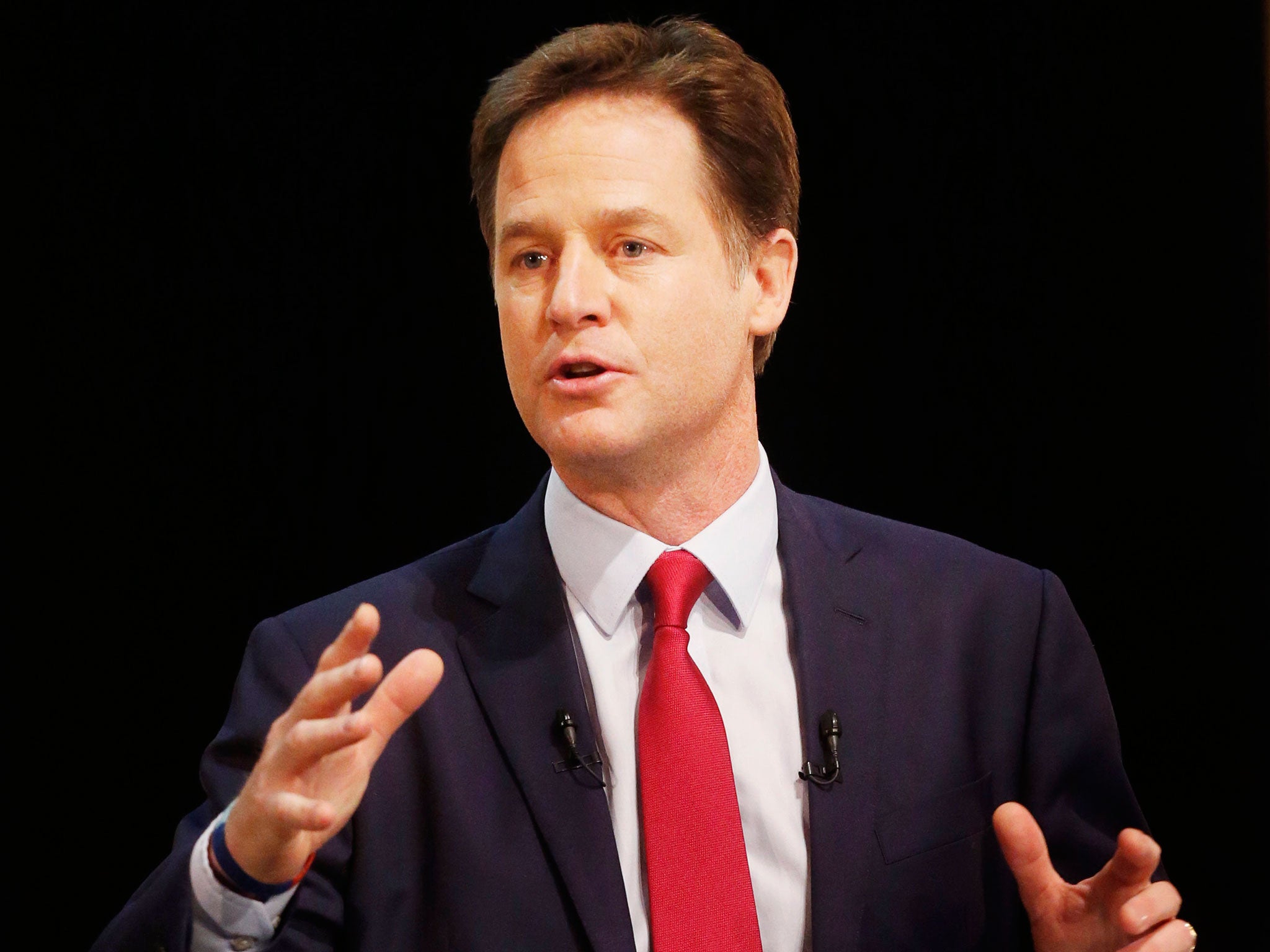New election rules affecting students could make or break Nick Clegg's chances in 2015
Mr Clegg has a perilous three-point lead over Labour in Sheffield Hallam - where 17.3 per cent of the electorate are students

Your support helps us to tell the story
From reproductive rights to climate change to Big Tech, The Independent is on the ground when the story is developing. Whether it's investigating the financials of Elon Musk's pro-Trump PAC or producing our latest documentary, 'The A Word', which shines a light on the American women fighting for reproductive rights, we know how important it is to parse out the facts from the messaging.
At such a critical moment in US history, we need reporters on the ground. Your donation allows us to keep sending journalists to speak to both sides of the story.
The Independent is trusted by Americans across the entire political spectrum. And unlike many other quality news outlets, we choose not to lock Americans out of our reporting and analysis with paywalls. We believe quality journalism should be available to everyone, paid for by those who can afford it.
Your support makes all the difference.Whether Nick Clegg retains his seat next year may be determined by the efforts of his local university to help their students register to vote.
Polling last week showed Mr Clegg has a perilous three-point lead over Labour in Sheffield Hallam - where 17.3 per cent of the electorate in the seat are students.
This a segment of the electorate that have turned drastically against the Liberal Democrats since the trebling of tuition fees in December 2010.
There have been concerns that changes to the electoral system being brought in at this election could make it harder for students to vote.
The next election will be the first time that the system of Individual Electoral Registration (IES), whereby voters have to register individually rather than by household
When Northern Ireland switched to IES in 2002, students were disproportionately affected by the transition. Because many students move accommodation from year to year, it is harder for Electoral Registration Officers to trace them to encourage them to re-register. The changes also affect students’ home addresses: under the new system, it will no longer be parents’ legal obligation to have them registered at home.
But Sheffield University, where a number of students live in Mr Clegg’s constituency, has been attempting to prevent the student vote diminishing – or even increase it.
It has liaised with Sheffield City Council to give new students the opportunity to be included on the electoral register when they register with the university.
It “offers a small but important step towards turning 'disaffected democrats' into 'contented citizens' ”, said Matthew Flinders, the Director of the Sir Bernard Crick Centre at Sheffield University.
Stephen Fisher, the co-author of a new Higher Education Policy Institute report on the electoral power of the student population added it could spell bad news for the Lib Dem leader.
“Given that Labour are now much more popular than the Liberal Democrats among students, increased registration of students in Sheffield looks more likely to harm than to help Clegg’s chances of re-election,” he said.
However unlike Sheffield University, the city’s other university Sheffield Hallam, has - like the vast majority of higher educations throughout the UK - so far failed to follow Sheffield’s lead on voter registration.
Nevertheless, the HEPI report estimates that students voting differently to national trends will determine around 10 seats. This is expected to largely benefit Labour at the expense of the Conservatives and Lib Dems. The student vote could also benefit the Green Party: 25 per cent of students backed the party in the European elections. The Greens are targeting Bristol West, where 24.3 per cent of the electorate are students, as the most likely source of a second MP.
Join our commenting forum
Join thought-provoking conversations, follow other Independent readers and see their replies
Comments